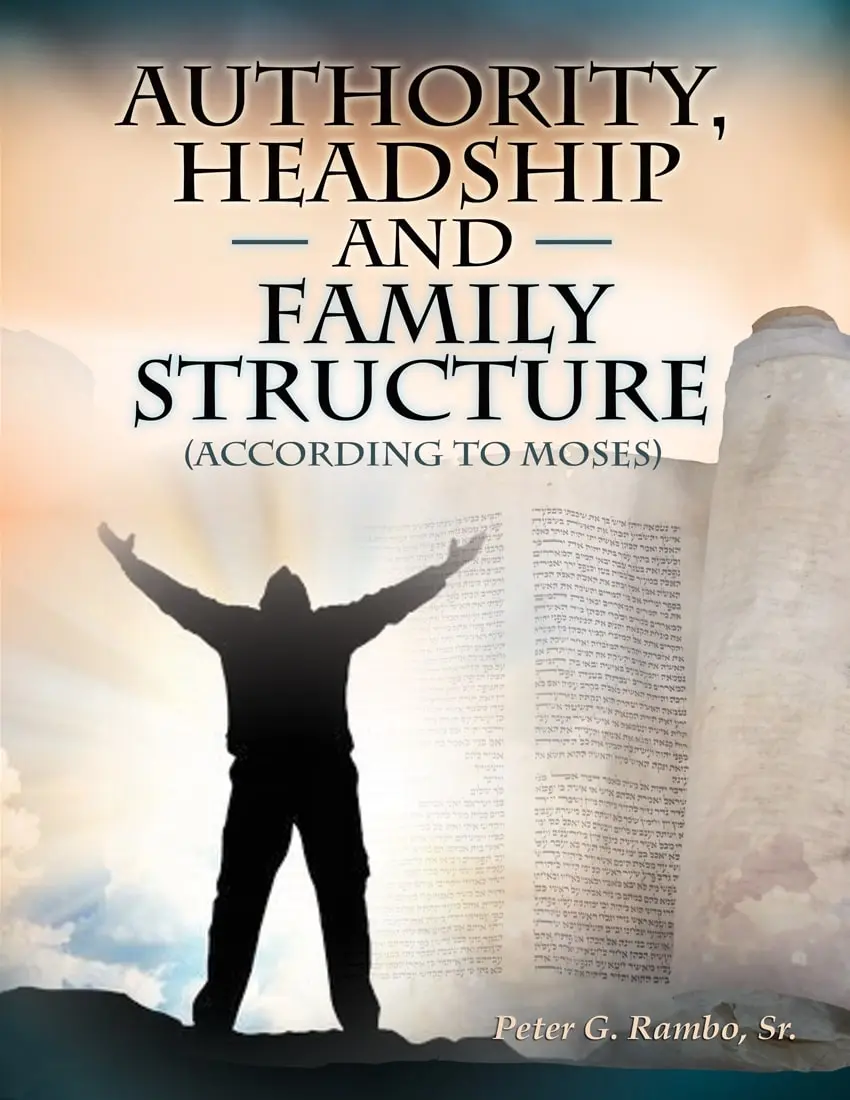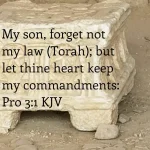One of the great travesties of our generation, maybe intentionally wrought, is the lack of training we have concerning the basic rules of logic and logical fallacies.
Today, I want to explain the logical fallacy called ‘equivocation’ and demonstrate how the pulpit is guilty and why it is critical you understand and recognize it.
First, a very short explanation of what this fallacy is and a few quick examples. You can do a websearch for ‘equivocation, logical fallacy‘ and numerous sites will pop up with deeper information and some funny examples. The fallacyfiles.org quotes the following on their ‘equivocation’ page:
Equivocation is the type of ambiguity which occurs when a single word or phrase is ambiguous, and this ambiguity is not grammatical but lexical. So, when a phrase equivocates, it is not due to grammar, but to the phrase as a whole having two distinct meanings.
- Criminal actions are illegal, and all murder trials are criminal actions, thus all murder trials are illegal. (Here the term “criminal actions” is used with two different meanings. Example borrowed from Copi.)
- The sign said “fine for parking here”, and since it was fine, I parked there.
- All child-murderers are inhuman, thus, no child-murderer is human. (From Barker, p. 164; this is called “illicit obversion”)
- A plane is a carpenter’s tool, and the Boeing 737 is a plane, hence the Boeing 737 is a carpenter’s tool. (Example borrowed from Davis, p. 58)
We see that in equivocation, the offending word in a debate/discussion/argument has to be defined and understood by both parties, else the logical fallacy can occur presenting a false conclusion.
In the case of theology or doctrine, all parts must fit together coherently and logically, or the conclusion can be wildly errant. Basically, the definition of words needs to remain consistent for Scripture to be a solid foundation.
Our subject is ‘commandments.’ Is the word ‘commandments’ consistently defined, or, might we witness Christendom committing the logical fallacy of equivocation?
(Acknowledging that there are a few cases with very specific commandments in view and context being the determining factor, I will use passages where ‘commandments’ points to the whole of the Law.’)
If you love Me, you will keep My commandments.
What ‘commandments’ is He talking about?
1 John 2:3-7 says,
By this we know that we have come to know Him, if we keep His commandments. 4 The one who says, “I have come to know Him,” and does not keep His commandments, is a liar, and the truth is not in him; 5 but whoever keeps His word, in him the love of God has truly been perfected. By this we know that we are in Him: 6 the one who says he abides in Him ought himself to walk in the same manner as He walked.
7 Beloved, I am not writing a new commandment to you, but an old commandment which you have had from the beginning; the old commandment is the word which you have heard.
1 John 5:2-3 says,
By this we know that we love the children of God, when we love God and observe His commandments. 3 For this is the love of God, that we keep His commandments; and His commandments are not burdensome.
Do not think that I came to abolish the Law or the Prophets; I did not come to abolish but to fulfill. 18 For truly I say to you, until heaven and earth pass away, not the smallest letter or stroke shall pass from the Law until all is accomplished. 19 Whoever then annuls one of the least of these commandments, and teaches others to do the same, shall be called least in the kingdom of heaven; but whoever keeps and teaches them, he shall be called great in the kingdom of heaven.
So, here is a question, is there a difference between ‘commandments’ in the first two passages and ‘commandments’ in the second two passages?
See, the church, in order to present the ‘religion’ of Christianity as something that dramatically changed at the cross, redefines ‘commandments’ without explaining that they are equivocating on the lexical meaning of the term. Just ask your pastor what Yeshua means when He says, ‘If you love Me, you will keep My commandments.‘ Pin your pastor down on what the definition of ‘My commandments’ is in the context of that verse.
Then ask him, “What did Yeshua/Jesus mean when He said, ‘My doctrine is not mine, but his that sent me.”‘
If Yeshua’s doctrine/teaching comes from the Father, and He (technically both Yeshua and Yahweh) is/are the ‘same yesterday, today and forever’ then the doctrine revealing Himself, handed down at Sinai as a covenant, does not change. Yeshua’s ‘commandments’ and the ‘commandments of God’ are one and the same.
Here is where you will find that he is equivocating on ‘commandments’ and applying a different definition to ‘commandments’ in the Old Testament versus the New Testament.
Does Scripture say that Yeshua can preach different commandments? Deuteronomy 13:1-5 says,
If a prophet or a dreamer of dreams arises among you and gives you a sign or a wonder, 2 and the sign or the wonder comes true, concerning which he spoke to you, saying, ‘Let us go after other gods (whom you have not known) and let us serve them,’ 3 you shall not listen to the words of that prophet or that dreamer of dreams; for the Lord your God is testing you to find out if you love the Lord your God with all your heart and with all your soul. 4 You shall follow the Lord your God and fear Him; and you shall keep His commandments, listen to His voice, serve Him, and cling to Him. 5 But that prophet or that dreamer of dreams shall be put to death, because he has counseled rebellion against the Lord your God who brought you from the land of Egypt and redeemed you from the house of slavery, to seduce you from the way in which the Lord your God commanded you to walk. So you shall purge the evil from among you.
The prophet can only speak the Word of Yahweh and the people are to keep His (Yahweh’s) commandments in the face of any other instructions. In fact, if Yeshua (or any other prophet) teaches contrary to the Commandments of Yahweh, it is SIN punishable by death. Had Yeshua taught contrary to the commandments, He would have sinned and been disqualified to be our Messiah as well as the Jews would have been justified in hanging Him on the cross.
Deuteronomy 18:15-19 again confirms this when Moses says Yahweh will raise up a prophet like unto himself who will speak what the father commands:
“The Lord your God will raise up for you a prophet like me from among you, from your countrymen, you shall listen to him. 16 This is according to all that you asked of the Lord your God in Horeb on the day of the assembly, saying, ‘Let me not hear again the voice of the Lord my God, let me not see this great fire anymore, or I will die.’ 17 The Lord said to me, ‘They have spoken well. 18 I will raise up a prophet from among their countrymen like you, and I will put My words in his mouth, and he shall speak to them all that I command him. 19 It shall come about that whoever will not listen to My words which he shall speak in My name, I Myself will require it of him.
Very simply, the commandments of Yeshua are the identical commandments of Yahweh. None are annulled, abolished, abrogated or in any other way destroyed, removed, etc. So, if your pastor preaches ‘If you love Me, you will keep My commandments,’ and does not intend, whether spoken or not, that the commandments of Yeshua/Jesus are identical to the commandments of Yahweh/Father God, he is equivocating on the word ‘commandment.’
(“But, but, but… Paul said….” uh, you might want to watch the Pauline Paradox series to get the straight scoop before going down that road.)
Now, let’s have a few more examples from Scripture:
I would recommend you do your own search with a concordance, however, here is a preloaded list searching the KJV on Biblegateway.com for ‘commandments.’ Most of the 168 examples that load in this list are relevant, though the context for a few directly relates to the ‘commandments of men.’
Exodus 16:28, “And the Lord said unto Moses, How long refuse ye to keep my commandments and my laws?”
Exodus 20:6, “And shewing mercy unto thousands of them that love me, and keep my commandments.”
Leviticus 22:31, “Therefore shall ye keep my commandments, and do them: I am the Lord.”
Leviticus 26:3, “If ye walk in my statutes, and keep my commandments, and do them;”…. blessings.
Leviticus 26:14 “But if ye will not hearken unto me, and will not do all these commandments;”… curses.
Numbers 15:39-40, “And it shall be unto you for a fringe (tzitzit or tassel), that ye may look upon it, and remember all the commandments of the Lord, and do them ; and that ye seek not after your own heart and your own eyes, after which ye use to go a whoring: That ye may remember, and do all my commandments, and be holy unto your God.
Joshua 22:5, “But take diligent heed to do the commandment and the law, which Moses the servant of the Lord charged you, to love the Lord your God, and to walk in all his ways, and to keep his commandments, and to cleave unto him, and to serve him with all your heart and with all your soul.”
Psalm 103:17-18, “But the mercy of the Lord is from everlasting to everlasting upon them that fear him, and his righteousness unto children’s children; To such as keep his covenant, and to those that remember his commandments to do them.”
Psalm 119:172, “My tongue shall speak of thy word: for all thy commandments are righteousness.”
Matthew 19:17, “And he said unto him, Why callest thou me good? there is none good but one, that is, God: but if thou wilt enter into life, keep the commandments.”
Luke 1:6, “And they were both righteous before God, walking in all the commandments and ordinances of the Lord blameless.”
John 14:21, “He that hath my commandments, and keepeth them, he it is that loveth me: and he that loveth me shall be loved of my Father, and I will love him, and will manifest myself to him.”
John 15:10, “If ye keep my commandments, ye shall abide in my love; even as I have kept my Father’s commandments, and abide in his love.”
1 Corinthians 7:19, “Circumcision is nothing, and uncircumcision is nothing, but the keeping of the commandments of God.”
1 John 3:21-22, “Beloved, if our heart condemn us not, then have we confidence toward God. And whatsoever we ask, we receive of him, because we keep his commandments, and do those things that are pleasing in his sight.”
Revelation 12:17, “And the dragon was wroth with the woman, and went to make war with the remnant of her seed, which keep the commandments of God, and have the testimony of Jesus Christ.”
Revelation 14:12, “Here is the patience of the saints: here are they that keep the commandments of God, and the faith of Jesus.”
Revelation 22:14, “Blessed are they that do his commandments, that they may have right to the tree of life, and may enter in through the gates into the city.”
This is just a smattering from both the Tanakh and the New Testament. The definition of ‘commandments’ is consistent from Genesis 26:5 to Revelation 22:14. When Yeshua says, “If you love Me, you will keep My commandments,” He is talking about the commandments of God. The same commandments commonly referred to as the Torah.
James 1:17 says, “Every good gift and every perfect gift is from above, and cometh down from the Father of lights, with whom is no variableness, neither shadow of turning.” There is no shadow of turning or ‘equivocation’ with the eternal King.
In wrapping this up, I want to point out that this exact same line of thought runs through the word ‘Law’ where translated from the Hebrew ‘Torah.’ Can the common Christian pastor preach the following passages WITHOUT equivocating on the meaning of the word ‘Law’ or Torah?
How blessed is the man who does not walk in the counsel of the wicked, Nor stand in the path of sinners,
Nor sit in the seat of scoffers!
2 But his delight is in the law of the Lord,
And in His law he meditates day and night.
3 He will be like a tree firmly planted by streams of water,
Which yields its fruit in its season
And its leaf does not wither;
And in whatever he does, he prospers. (Psalm 1:1-3)
Or,
The law of the Lord is perfect, restoring the soul;
The testimony of the Lord is sure, making wise the simple.
8 The precepts of the Lord are right, rejoicing the heart;
The commandment of the Lord is pure, enlightening the eyes.
9 The fear of the Lord is clean, enduring forever;
The judgments of the Lord are true; they are righteous altogether.
10 They are more desirable than gold, yes, than much fine gold;
Sweeter also than honey and the drippings of the honeycomb.
11 Moreover, by them Your servant is warned;
In keeping them there is great reward. (Psalm 19:7-11)
Or a hundred other passages….
Beware the equivocating doctrine or pastor….
Got Torah?




















































































































Excellent points. Plus James 4:12 says there is 1 lawgiver…not 2 lawgivers for 2 different peoples with 2 different sets of standards. Otherwise, the mixed multitude at Sinai would have been given a seperate set of instructions.
LikeLike
Excellent point. Didn’t put the One Lawgiver thought in there, though I think a whole post can be made just making the case that Yeshua is the Lawgiver, further demonstrating the unity in the commands of the Father and Yeshua!
http://faithgracetorah.net/2013/05/24/giver-of-the-torah/ is an excellent article exploring the ‘echad’ nature of the Lawgiver.
Shalom!
LikeLike
looks like I repeated myself down here somehow 🙂 Anywho, excellent teaching. I like his posts too. It is a good summary teaching on that subject. Thanks!
LikeLike
Excellent points Pete. Plus James 4:12 says there is one lawgiver. Not 2 for 2 different groups of people. If that were the case we’d see at Sinai the mixed multitude getting their own set of ‘commands’ at that time.
LikeLike
Hmmm! And wasn’t it said ‘by the mouth of two or three witnesses let everything be established’? Wow!!!! He sure has left a lot of witnesses hasn’t He? How’d we miss that all these years??? Thanks Pete. Be blessed.
LikeLike
Pingback: What ‘Word of God’ was Yeshua referring to? | natsab